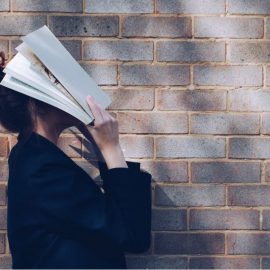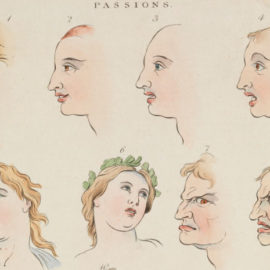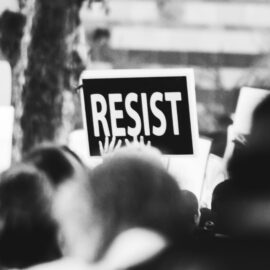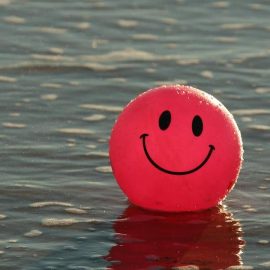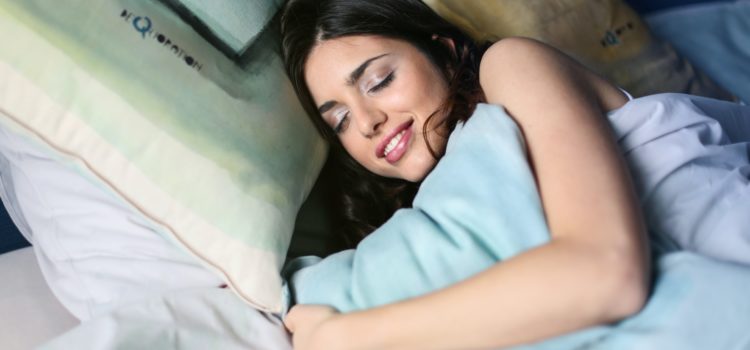
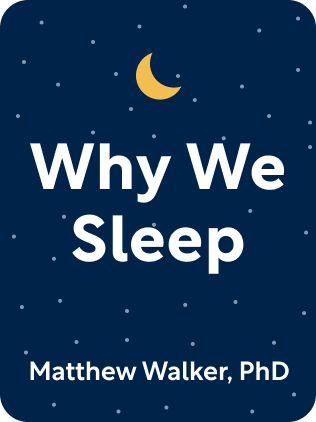
This article is an excerpt from the Shortform summary of "Why We Sleep" by Matthew Walker. Shortform has the world's best summaries of books you should be reading.
Like this article? Sign up for a free trial here .
What is CBT for insomnia? Does it work?
CBT for insomnia is one theory for treatment that can help insomnia. CBT for insomnia is a treatment that stands for Cognitive Behavioral Therapy. Using CBT for insomnia, you focus on changing behavior to decrease anxiety and improve sleep.
What Is Insomnia?
For you to learn about CBT for sleep, first consider why people might use it. Insomnia is defined as making enough time for sleeping, but having insufficient sleep quantity or quality, for more than 3 months. Symptoms include difficulty falling asleep, waking up in the middle of night, and feeling unrefreshed in the morning.
When they do sleep, insomniacs have more fragmented REM sleep and shallower brainwaves in NREM.
1 out of 9 people suffer from insomnia. It’s twice as common in women than men, and more common in blacks/Hispanics than whites, for unknown reasons.
The most common triggers of insomnia are emotional concerns or distress. The biological cause is linked to an overactive sympathetic nervous system, which raises body temperature and levels of cortisol/epinephrine. In turn, the thalamus, hippocampus, and amygdala all remain more active than in normal sleeping patients
Given the complex physiology of insomnia, it’s unlikely blunt instruments like sleeping pills will fix the root cause. Many claim that CBT for insomnia can help.
CBT for Insomnia
Cognitive behavioral therapy (CBT) is a common non-pharmacological method for changing behavior. It’s commonly applied to depression, but there are variants for insomnia.
CBT for insomnia has been shown to be more effective than sleeping pills.
A big part of alleviating insomnia is redeveloping confidence around ability to sleep. Thus, some practices force insomniacs to restrict their time in bed, maybe even to 6 hours or less. This builds up stronger sleep pressure, and so patients fall asleep faster and regain psychological confidence.
Other prescriptions:
- Don’t have a clock nearby or you’ll watch the clock and be anxious that you’re not falling asleep.
- If unable to sleep, get out of bed and go back when sleepy. Don’t lie in bed awake
- Go to bed only when you’re sleepy.
- Avoid daytime napping.
- Reduce anxiety-provoking thoughts before bed.
Good Sleep Practices
In addition to avoiding all the problems from the last chapter (eg caffeine, alarms), here are more tips:
- Keep the same waking and sleeping time each day. Erratic sleep schedules disrupt sleep quality.
- Practice sleep hygiene – lower bedroom temperature, reduce noise, reduce light.
- No alcohol, caffeine, exercise, or long naps before sleep.
- Exercise seems to increase total sleep time and increase quality of sleep.
- This is more a chronic effect. This does not seem to act immediately on a day-to-day scale – exercise on one day doesn’t necessarily lead to better sleep that night. But worse sleep on one night does lead to worse exercise the following day.
- Eat a normal diet (not severe caloric restriction of below 800 calories per day). Avoid very high carb diets (>70% of calories) since this decreases NREM and increases awakenings.
CBT for Insomnia: Improving Sleep Habits
CBT for insomnia is one method for improving sleep, and you can consult about it with a doctor. But in addition to CBT for sleep, you can use these methods for improving sleep.
Checklist for improving your sleep:
- Set a sleep schedule: sleep and wake up at the same times every day. Don’t sleep procrastinate, and don’t think that you can just sleep in on weekends (it makes it harder to wake up Monday morning)
- Don’t use alarms if you can help it. Alarms cause a huge stress reaction on waking. And snoozing causes repeated stress traumas every morning.
- Wake up with the sun or use very bright lights. This sets your circadian rhythm.
- Avoid all caffeine and nicotine if possible. But if you have to have caffeine, avoid it in the afternoon, since it takes over 10 hours to wear off fully.
- Exercise regularly, but not within 3 hours of sleep.
- Don’t nap after 3PM – they make it harder to sleep at night.
- Don’t drink alcohol unless it is completely metabolized by sleep time (including the aldehydes produced).
- Avoid large meals and drinks late at night. Large meals can cause indigestion; too many fluids cause frequent urinations.
- Reduce light before sleep. Blue light is the most harmful, but even bedside lamps cause issues. Artificial light delays the circadian rhythm by hours.
- Cool body temperature before sleep. The ideal sleeping temperature is 65F given standard bedding and clothes. Other tricks – expose your palms and feet while sleeping, take a hot bath before sleeping.
- Don’t rely on sleeping pills – these are usually just sedatives that put you more in a sedation state than sleep. Also, avoid medications that disrupt sleep.
- Don’t lie in bed trying to fall asleep for more than 20 minutes. Get up and do something until you feel sleepy. Anxiety will make it harder to fall asleep.
CBT for insomnia is one theory about how to help people with insomnia. Its effectiveness varies from person to person, and you should consult a doctor if you’re considering CBT for sleep.

———End of Preview———
Like what you just read? Read the rest of the world's best summary of Matthew Walker's "Why We Sleep" at Shortform .
Here's what you'll find in our full Why We Sleep summary :
- Why you need way more sleep than you're currently getting
- How your brain rejuvenates itself during sleep, and why nothing can substitute for sleep
- The 11-item checklist to get more restful sleep today

